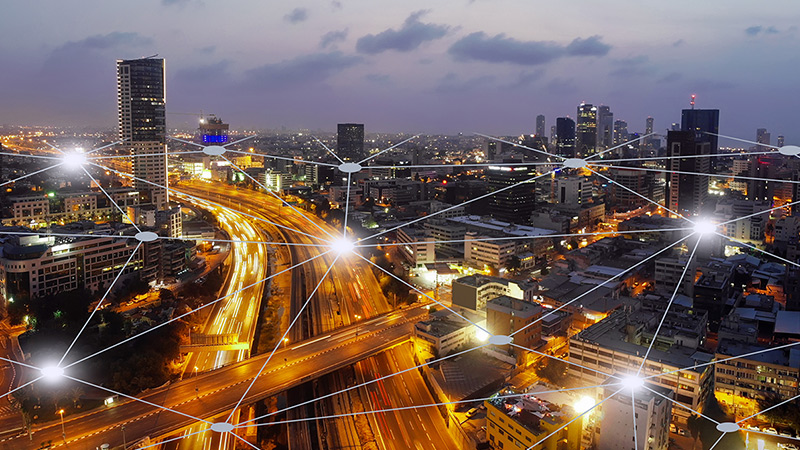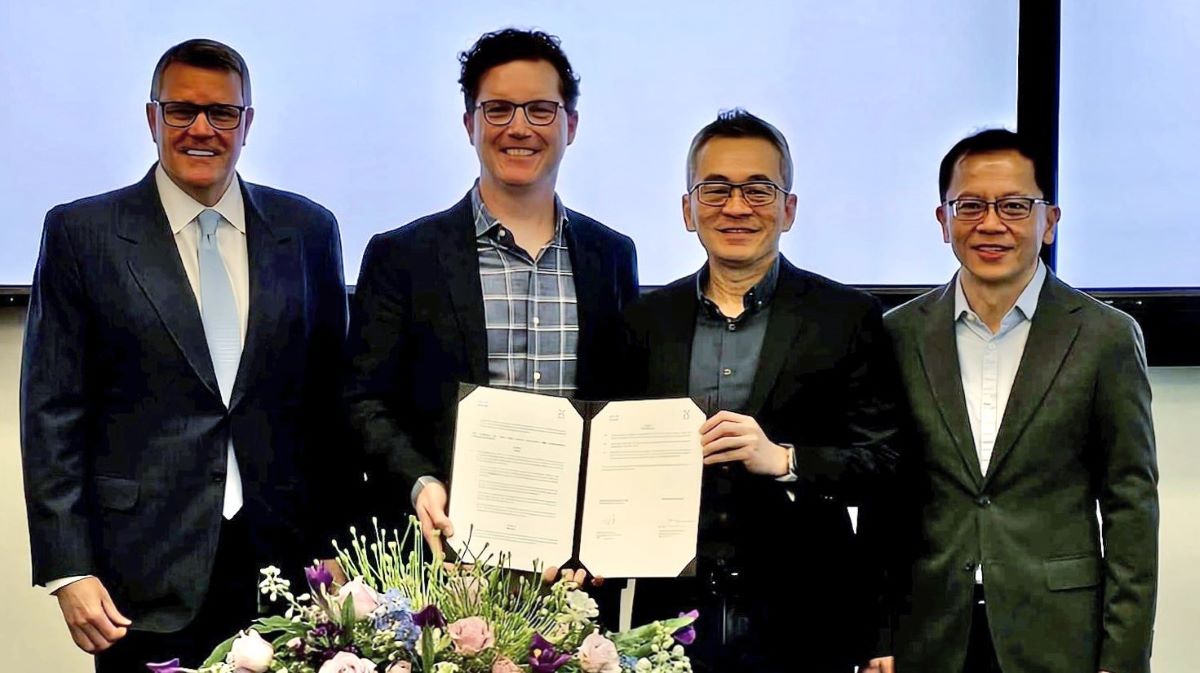NEW DELHI, India – May 6, 2010 - The 'Intelligent Urbanization: Roadmap for India' report was released today by Mr. Jaipal Reddy, Union Minister for Urban Development, at the International Conference on Intelligent Urbanisation organised by the Confederation of Indian Industry (CII). During his address the Minister emphasized the need for capacity addition in a sustainable fashion and the need of local bodies to focus on urban infrastructure. He also highlighted the need to infuse technology to save water and build new urban cities. Mr. Reddy commended the Report with a special mention on the Framework for Sustainable Urbanization and its focus on social, economic and environmental sustainability.
Earlier addressing the gathering Mr. Arun Maira, Member, Planning Commission, Government of India, said that "Urbanization has to be of the people, for the people and by the people". Mr. Maira also suggested that there is a need to be considerate about the environment and that India's development should be economically viable, inclusive and environmentally sustainable.
The Report recommends an investment of close to US $1 trillion from the government to improve basic urban services by 2020. The Report, prepared by Booz & Company in association with Cisco Systems for CII, examines the unique opportunities and challenges of urbanization in India and proposes a new framework for sustainable urbanization. CII defines the approach of Intelligent Urbanization as enhancing the citizen quality of life and social inclusion, boosting economic growth and decreasing our environmental impact.
"India is probably the only country which needs to not only revitalize some of the densest urban agglomerations in the world but also ensure the delivery of basic services to the lesser privileged in an efficient manner during this urban transformation. The opportunities and challenges are unique to India and therefore the solutions must be transformational, not incremental. Our solutions must help cities be truly sustainable: socially, economically and environmentally. India not only requires a massive investment from the government, but also the adoption of technology to make the investments more efficient supported by next generation smart government regulations and strategic public private partnerships," said Wim Elfrink, chairman, CII Steering Committee on Intelligent Urbanisation and chief globalisation officer and executive vice president, Cisco Services.
The Report recognizes that for urbanization to be truly sustainable, India needs to adopt the Framework for Sustainable Urbanization. The Report emphasizes that the benefits of urbanization should be socially equitable, economically viable and environmentally sustainable and recommends three major thrust areas to ensure Intelligent Urbanization in India at the Urban Local Body (ULB) level.
- Strengthening basics through next generation smart regulation and financing
- Enhancing execution capabilities through strategic public private partnerships
- Embedding technology as the engine to drive efficiency and equity
"At CII, we believe infrastructure is the foundation for economic growth and well being of a society and accord the highest priority to infrastructure development. With over two-third of India's GDP and 90% of the government's revenue generated from cities and towns, it is imperative that our cities are smarter and more efficient to become more competitive enabled by the necessary infrastructure and services. CII's recommendation is that India needs to adopt the Framework for Sustainable Urbanization to ensure the social, economic and environmental
well-being of our cities. The right investments in coordination with strategic public private partnerships and technology, as the enabler, will be the engines of growth for India to achieve intelligent urbanisation." said Chandrajit Banerjee, Director General, CII.
Recommendations:
The first area of focus is to strengthen the basics to ensure financial freedom by focusing on governance and financing. To encourage accountability, sustainable financial independence and long term planning, the Report recommends constitutional amendments to empower local bodies with executive powers, and structure administrative bodies.
The second area of recommendation is to build execution capabilities in order to strengthen personnel capabilities, broaden resources and develop public-private partnerships (PPP). The Report recommends instituting a state-level municipal cadre, establishing capacity building and appointing CIOs in cities. PPP should be more strategic by creating an enabling environment, encouraging states to create an Urban Infrastructure Fund and developing templates for replicability.
The third recommendation is to embed technology at the grass root level to transform the delivery of urban services such as education, health care, power, water, transportation, physical safety & security and other e-governance services. Recognizing that a robust and ubiquitous broadband infrastructure will be fundamental to the success of this effort, the report calls for fiber optic network to the kerb in the cities. The Report recommends India adopting a new Framework for Sustainable Urbanization, implementing an action plan to use technology to meet the government's Service Level Agreements with citizens and driving broadband and connectivity to encourage networking of the local governments and building data management capabilities. The Report outlines that using technology as an enabler in this transformation could lead to efficiency savings of US $130 billion over the next ten years.
Report Highlights:
A total of close to US $1 trillion will be required over the next 10 years in each area of basic service provisioning: urban housing (US $300 billion); security for cities (US $160 billion); urban education (US $150 billion); urban healthcare (US $120 billion); roads (US $100 billion); power generation (US $120 billion); sanitation facilities (US $40 billion) and water (US $30 billion).
For urbanization to be truly sustainable, India needs to adopt the Framework for Sustainable Urbanization. Recognizing that mere investments in enhancing infrastructure is not the solution, the Report notes that while urbanization has resulted in economic growth it has also posed
socio-economic and environment challenges. The Report establishes that for Intelligent Urbanization to be successful in India the social, economic and environmental well-being of cities needs to be ensured. Recognizing that for cities to become more competitive with the necessary infrastructure and services, they need to become smarter and more efficient, the Report emphasizes that technology can act as the key enabler to help achieve these goals. The Report underlines that investments in coordination with technology, smart regulation and strategic private public partnerships will be the essential engines of growth for India to achieve intelligent urbanisation.
The Report classifies the urbanization challenges in India into two categories: structural challenges which are driven by the nature of urbanization in India and execution challenges which are faced in implementing initiatives to improve urban infrastructure. The structural challenges are identified as unprecedented scale, high density cities, and brownfield urbanization and the execution challenges are an increase in efficiency in governance and an enhancement of resources for the municipalities. Given that urbanization in India is driven more by natural population growth than migration, the most significant challenge for India will be to revitalize existing urban centres while strengthening capacity to support the future growth.
Observing that the future of competition for talent and investment will be between cities, the Report illustrates how the competitiveness of individual cities is determined by quality of its infrastructure, ability to attract talent, medical facilities and quality and cost of housing. The Report observes that as India continues to urbanize, demand for basic urban services will accelerate even as population density makes it difficult to build and maintain the robust infrastructure needed to satisfy that demand. The ability of a city to cater to its ever increasing citizenry assumes importance not only in the context of satisfying the needs of existing residents, but also in attracting a talented workforce and consequently, private investments. Therefore, abundant and reliable housing, physical safety & security, education, health care, transportation, power and water are critical enablers to make a city more competitive.




